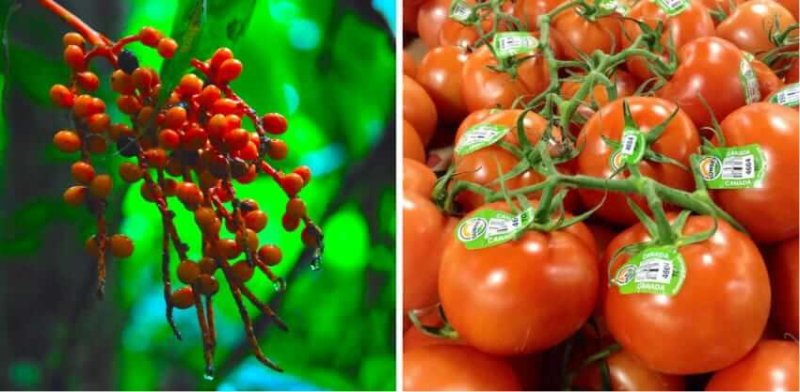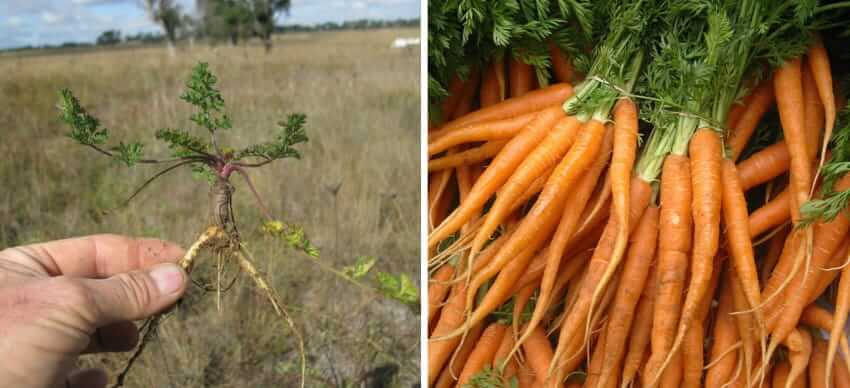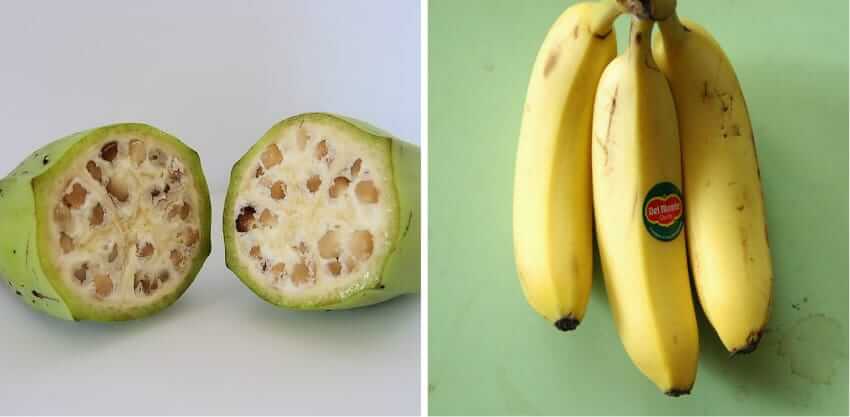Genes are bits of DNA which determine all sorts of traits and characteristics in any organism, from size to what chemicals certain cells express. Some genes offer traits that allow certain animals or plants to thrive in their environment, so these genes will be passed along. In time, with many generations, these genes will become common in the population. Our ancestors unwittingly sped up this process when they saved the seeds of the best crop plants to grow them next time, and the next, and the next.
That’s how tiny kernels on tall grass were turned into the juicy corn on the cob over 10,000 years of selection. With animals, we’ve “improved” or domesticated various species by selecting those individuals that had the best desirable qualities, from being compliant to our commands to yielding more milk. Here are a couple examples of wild vs selected crops:
Carrots
Bananas
Cabbage, broccoli, and kale
Tomatoes
So ever since the first hunter-gathers transitioned to a sedentary lifestyle, humans have been genetically modifying plants and animals around them by cross-breeding and selecting the most desirable traits in organisms.
Read full, original post: Are GMOs bad? Science says they’re safe



































